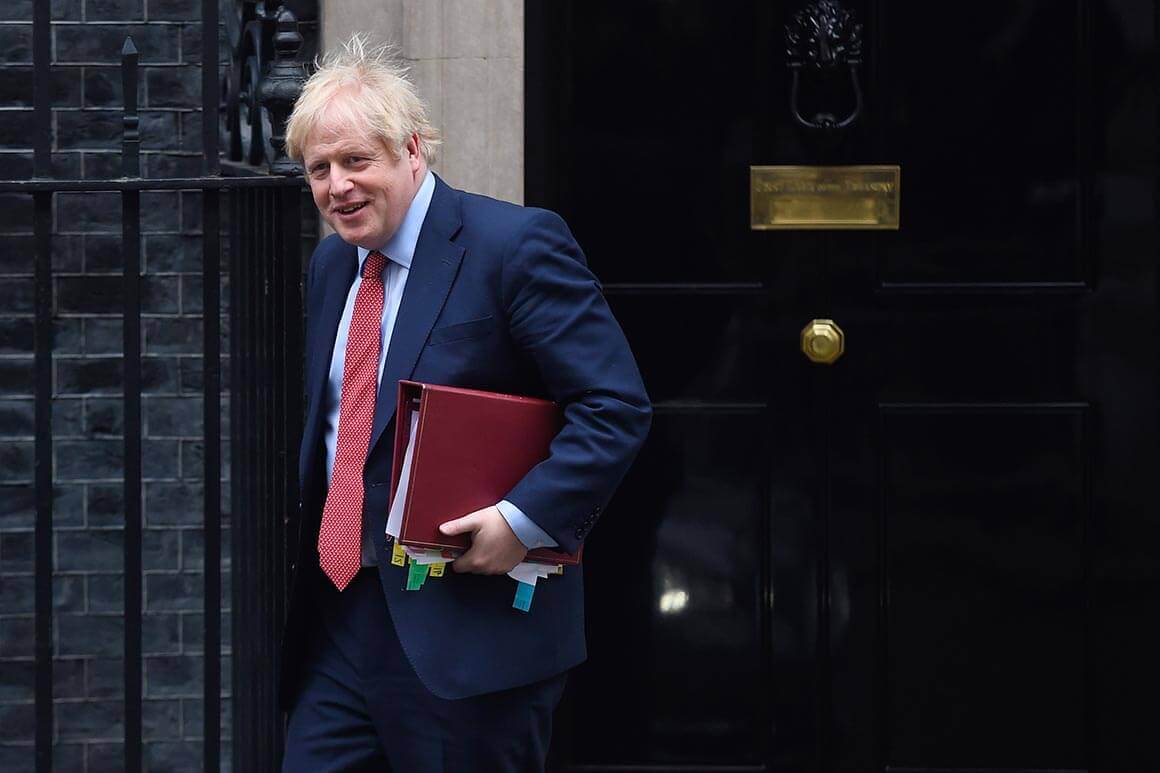Following sustained American pressure and amidst its opposition to China’s imposition of the new national security law in Hong Kong, the United Kingdom (UK) has performed a massive U-turn by banning telecom providers from buying Huawei’s 5G equipment. In addition, it has also ordered them to remove the Chinese tech firm’s 5G equipment from their networks by 2027. The decision was announced by Digital Secretary Oliver Dowden in front of the House of Commons.
This change in policy is a result of Prime Minister (PM) Boris Johnson’s consultations with the National Cyber Security Centre (NCSC) and comes after a meeting between Johnson and senior ministers with the National Security Council (NSC) on Tuesday. The decision was also hastened by the US’ decision to impose sanctions on the Chinese tech giant in May. In fact, Dowden said, “Given the uncertainty that this creates around Huawei's supply chain, the UK can no longer be confident it will be able to guarantee the security of future Huawei 5G equipment affected by the change in US foreign direct-product rules.” Huawei had already previously been banned from accessing the most “sensitive” parts of the UK’s 5G networks.
The UK’s decision stands to delay the implementation of 5G in the Kingdom by between one and three years. He said, “This has not been an easy decision, but it is the right one for the UK telecoms networks, for our national security and our economy, both now and indeed in the long run.” The difficulty with which the decision was reached was made clear by the fact that the UK stands to lose up to £2 billion.
China’s ambassador to the UK, Liu Xiaoming, called the announcement “disappointing and wrong” and decried the lack of an “open, fair, and non-discriminatory business environment for companies from other countries” in the UK. His sentiments were echoed by the Chinese foreign ministry, and he also warned of “consequences” if Britain goes further down this path of treating China as an enemy rather than a friend. Likewise, he also accused the UK of “dancing to the tune” of the US.
Meanwhile, US Secretary of State Mike Pompeo was jubilant, saying, “The UK joins a growing list of countries from around the world that are standing up for their national security by prohibiting the use of untrusted, high-risk vendors.”
While the UK is moving away from Huawei, it is unclear as to who will now take the reins. However, the Digital Secretary said that the UK must avoid becoming overly dependent on Nokia, which is currently the only other supplier for the equipment provided by Huawei. Both Ericsson and Nokia have extolled their interest in filling the void left by Huawei. Nokia’s CEO for the UK and Ireland, Cormac Whelan, said, “We have the capacity and expertise to replace all of the Huawei equipment in the UK's networks at scale and speed.” Meanwhile, Ericsson’s President of Europe and Latin America, Arun Bansal, said, “We stand ready to work with the UK operators to meet their timetable, with no disruption to customers.”
In January, the UK’s National Security Council approved the controversial deal allowing Huawei to build parts of the UK’s 5G network. As part of the contract, it was stipulated that Huawei would be given access to “non-core” parts of the network, but would be banned from “‘sensitive locations’ like military or nuclear sites”. Over the long term, the aim was to reduce Huawei’s share of 35% of UK’s 5G market by including more providers.
In response, the US threatened to withdraw spy planes, intelligence officials, and other military and intelligence operations from the UK due to the threat of Chinese “espionage and sabotage” that could threaten the sovereignty of both the US and the UK. In fact, just today, President Donald Trump said, “We confronted untrustworthy Chinese technology and telecom providers. We convinced many countries not to use Huawei because it's a big security risk. Just today, the UK announced that they are not going to be using it.”
While the decision may appear to be a surprise, it has, in fact, been a while coming. In early June, Boris Johnson unveiled plans to impose a stringent new law that will compulsorily require local companies to notify the authorities in case a foreign company aims to take-over its shares.
Likewise, the UK has irked China in recent weeks by criticizing its new national security law in Hong Kong and offering a path to citizenship for nearly 3 million Hongkongers. While China has threatened that there will be “consequences”, it remains to be seen how it will react. However, it has been implementing tit-for-tat sanctions against the US, the latest being against Senators Ted Cruz and Marco Rubio and aerospace and defense company Lockheed Martin.
UK Bows Under US Pressure, Bans Huawei From 5G Network
The decision marks a massive U-turn, after approving the Huawei deal only in January.
July 15, 2020

IMAGE SOURCE: PAUK PM Boris Johnson
